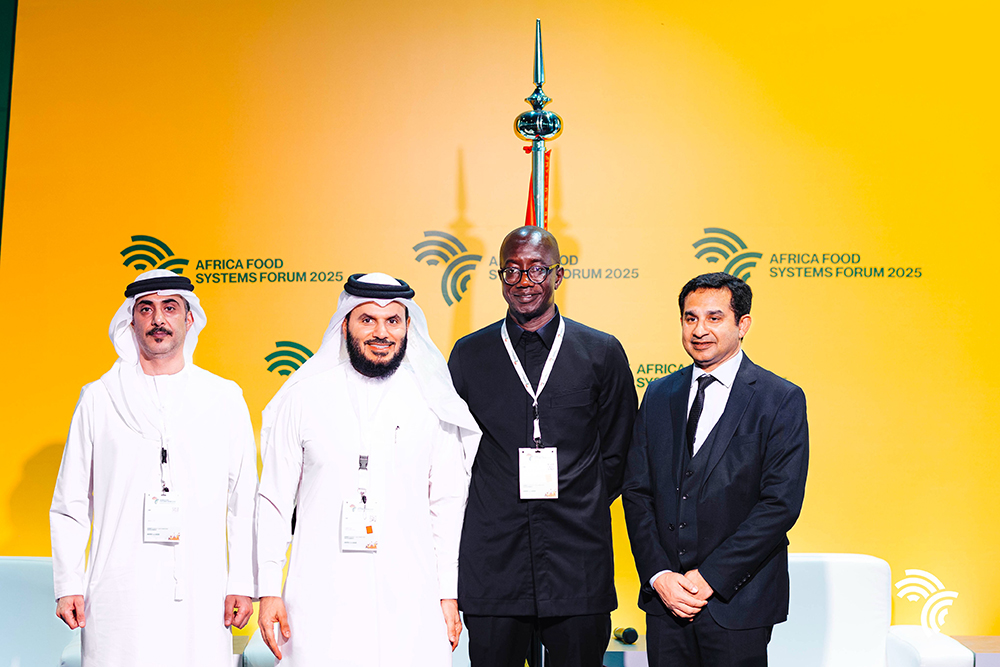UK earmarks over sh23b to operationalise African Union sustainable food production initiative
The Kampala declaration is a new agricultural development strategy that will see the continent increase its agrifood output by 45 per cent by 2035 and transform its agri-food systems as part of its new plan to become food secure in a decade.
Lord Collins of Highbury, Minister for Africa, Foreign, Commonwealth & Development Office (FCDO), United Kingdom unveiling the package during the summit. (Courtesy photos)
________________
The UK government has unveiled £5 million (about shillings 23.6 billion) to operationalise the Comprehensive Africa Agriculture Development Programme (CAADP) Kampala declaration.
CAADP is a flagship continental programme for member states of the African Union, including Uganda, aimed at boosting investment to stimulate growth in the agricultural sector.
The African Union on May 5, 2025, launched the Kampala CAADP Strategy and Action Plan (2026–2035), which aims to mobilise $100 billion, lift agrifood output by 45 per cent, triple intra-African trade in farm goods, and cut post-harvest losses in half.
CAADP is an Agenda 2063 continental initiative aimed at helping African countries eliminate hunger and reduce poverty by raising economic growth through agriculture-led development. The Launch at the two-day conference in Johannesburg, South Africa, raised the stakes for food systems, with the Kampala CAADP Declaration now signed.
The UK funding package that is expected to be channelled through AGRA was announced by Lord Collins of Highbury, the UK Minister for Africa, Foreign, Commonwealth & Development Office (FCDO).
The announcement comes as part of the ongoing Africa Food Systems Summit, taking place in Dakar, Senegal.

“It gives me huge pleasure today to announce a new UK partnership with AGRA, including working with the African Union. This funding will help deliver the Kampala declaration supporting efforts to grow agricultural trade and strengthen key food corridors across Africa."
The revelations are contained in a social media post of the Food Systems Forum.
“We know that Agriculture remains underinvested despite it employing over half of Africa's workforce and making up nearly 20% of its GDP. With the global food market worth $7 trillion, this represents the opportunity for Africa's agribusinesses," he added.
The Kampala declaration is a new agricultural development strategy that will see the continent increase its agrifood output by 45 per cent by 2035 and transform its agri-food systems as part of its new plan to become food secure in a decade.
In the Kampala declaration, the 55 AU member countries set six commitments that should transform and strengthen the agri-food system on the continent. This is because Africa’s population is projected to reach 2.5 billion people by 2050, while the global population is expected to reach 9.8 billion people, according to the African Union.
Leaders also acknowledged the challenges this will pose for food demand and the need for significant increases in agricultural production, productivity, food processing, and trade. This led to their commitment to intensify sustainable food production, agro-industrialisation, and trade.
With the new window of funding, African leaders hope to see agricultural transformation for increased food and nutritional security, but also agri-food trade.
Still at the summit, the UAE Food Cluster and the AFS Forum have signed a strategic agreement to accelerate trade, innovation and investment across regional food systems on the sidelines of Under this arrangement, 'UAE Foodverse', platform will offer African governments, SMEs and agribusinesses direct, year-round access to global markets, policy dialogue and capital.
"This will be a platform for action. It will be about matching opportunity with infrastructure and turning shared commitments into real systems change,” explained Amath Sene, Managing Director of the Africa Food Systems Forum.
Adding that the MoU reflects a shared commitment to practical tools that connect opportunity with infrastructure and turn intent into execution.